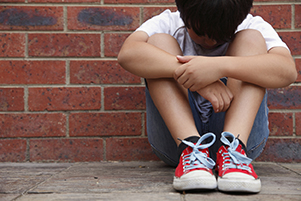Suicide rates have been on the rise. For the past 10 years, children and teens have been taking their own lives at alarming rates.
 The CDC reported that suicide was the second leading cause of death among people ages 10-34.
The CDC reported that suicide was the second leading cause of death among people ages 10-34.
UC Davis Health adolescent medicine physician Laura Kester says the challenges that children and teens normally face have been amplified by isolation and distancing during the pandemic.
The rate of suicide for those ages 10 to 24 increased nearly 60% between 2007 and 2018, according to the Centers for Disease Control and Prevention (CDC). The CDC reported that suicide was the second leading cause of death among people ages 10-34 in 2018.
"I have most definitely felt the mental health challenges reflected in patient needs and interactions with me," Kester said. "It unfortunately has been a hard time for adolescents, as for so many."
We asked Laura Kester some frequently asked questions about teen suicide and what to watch for.
What are signs that parents should be looking for?
Many of the warning signs of suicide are also symptoms of depression, such as your child expressing that he or she feels like a burden, losing interest in usual activities or schoolwork, withdrawing from family and friends, neglecting one's appearance, increasing substance use or acting out.
Other common signs include:
- Increased anxiety
- Unnecessary risk-taking
- Feeling trapped or in unbearable pain
- Lack of response to praise
- Looking for a way to access lethal means
- Increased anger, rage or irritability
- Extreme mood swings
- Problems focusing
- Running away
- Expressing hopelessness
- Changes in eating and sleeping habits that result in sleeping too little or too much and eating too little or too much
- Talking, posting, or obsessing about death or wanting to die
- Making plans for suicide
- More physical complaints often linked to emotional distress, such as stomachaches, headaches, and extreme tiredness (fatigue)
- Making plans or efforts toward committing suicide or writing a suicide note
- Giving or throwing away important or favored possessions
What can you do as a parent if you're concerned about your child contemplating suicide?
As a parent or guardian, try to be open in your communication with your child or children: let them know that you love them, support them, and are there to talk and listen. Try not to let them spend too much time alone. Pay attention to changes in behaviors or signs of withdrawal from regular activities. Safely secure all medications, substances or weapons at home.






